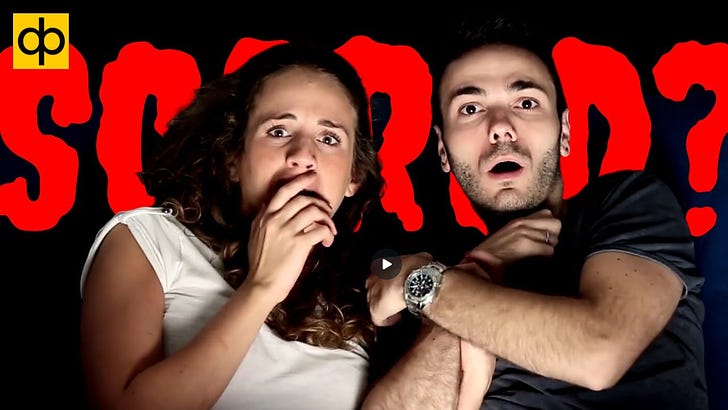Dear friends of Daily Philosophy,
Today we reach 300 posts in this newsletter, for which I want to thank all of you, and particularly our paying supporters for their generous contributions to keeping Daily Philosophy alive! If you’d like to be one of them (which costs you only 7 USD, or the price of a fancy coffee each month), you can upgrade your subscription painlessly right here:
After we’ve had many great guest articles in the past weeks, today I’m happy to bring you one of my own for a change. It is about a famous problem in aesthetics, which is called the Paradox of Fiction: why are we scared of monsters in movies when we know very well that they don’t really exist? The question is more interesting than one might think, and it is a real conundrum, so let’s jump right in!
By the way, if you’d like to support Daily Philosophy without paying money, one good thing you could do is click on and watch the video above to the end. It’s only 6 minutes long, but every full view tells YouTube that the video is good and that it should be showing it to others, which eventually also helps Daily Philosophy without costing you anything. So thank you again for your support!
The Paradox of Fiction
The paradox of fiction asks how we can experience genuine emotions for things that are not real. How we can fear a monster in a horror movie, or shed tears for a tragic hero in a play? After all, we know that these characters are just made up.
The paradox of fiction arises from three seemingly true but incompatible claims:
We have emotional responses to fictional characters, objects, and events that we encounter in works of art.
To have emotional responses to something, we must believe that it exists.
We do not believe that fictional characters, objects, and events exist.
The paradox is that we cannot accept all three claims at the same time without contradiction.
Keep reading with a 7-day free trial
Subscribe to Daily Philosophy to keep reading this post and get 7 days of free access to the full post archives.



